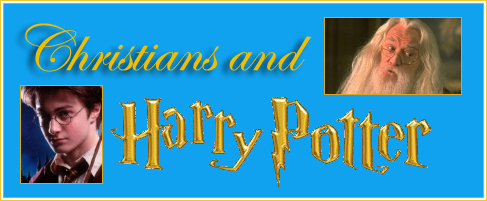

Do the Harry Potter books promote witchcraft?
The Harry Potter books are fantasy, intended for entertainment. They do involve witches, wizards, and magic. However these are presented in a fantastic manner that does not resemble Wicca or "real" witchcraft. Neither the author nor the books encourage children to try magic in real life. Whether the books promote witchcraft indirectly is debatable.
Is J.K. Rowling a witch?
No, she's a Christian.
Why do Christians freak out about the witchcraft element?
Many Christians believe that there is an active spiritual world and witchcraft involves the darker elements of it. They see a real danger in children being taught to think of witchcraft as a positive thing.
What is "Real" witchcraft?
"Real" witchcraft is an attempt to find spiritual power without God. There are several branches/variations of Wicca/witchcraft. Some of them claim good intentions, some are admittedly self-serving, and others openly admit seeking dark forces. In Christian thinking all good comes from God, so spiritual power sought away from God is by nature bad, if not simply demonic.
Note: While some Wiccans do believe in a single god or godlike force, there are some core differences from the Judeo-Christian perception of God.
What makes the magic in Harry Potter different from "real" witchcraft?
The biggest difference is the nature of the source. The magic in Harry Potter may require mental concentration but not a spiritual commitment. It's a natural talent.
"Real" witchcraft often involves calling on spirits or using ones own spirit, wherein lies the danger.
There is also the obvious fancifulness of the magic in Harry's world. No "real" witch has ever accidentally conjured a flock of flamingos or played an odd mix of basketball and polo while riding aerodynamic broomsticks. Ghosts don't have death day parties, and poltergeists don't wear bowties.
For what ages are the Harry Potter books recommended?
This site reccomends 11 and up, though this really depends on the maturity of the child. The books do age with their characters. The plot becomes darker and more complex with the rising action, even the most recent book, however, is appropriate for the average 13 year old and tamer than many PG-13 movies.
From Brandon Valley Middle School in Brandon, South Dakota's Accelerated Reader lists:
Harry Potter and the Sorcerer's Stone: 5.5
Harry Potter and the Chamber of Secrets: 6.7
Harry Potter and the Prisoner of Azkaban: 6.7
Harry Potter and the Goblet of Fire: 6.8
Harry Potter and the Order of the Phoenix: 7.2
Harry Potter and the Half-Blood Prince: 7.2
Are the movies just like the books?
The first film is very similiar to the first book. As the series continues, the books grow longer and more condensed for each film. The most recent film "Harry Potter and the Goblet of Fire" was condensed down from a tightly plotted 600 page novel. The book was more of a mystery. The film was more of an action flick and several key scenes were changed significantly.
What are the best arguments against Harry Potter?
By showing fantasy wizards and witches as good guys, there is some potential that curious and vulnerable minds might be led to read into or try real witchcraft. Harry Potter does borrow terms from mythos and things J.K. Rowling believes to be myth that are still being used in modern witchcraft.
The Harry Potter books are often marketed at too young an age group.
What are the best arguments for Harry Potter?
The books have managed to get many, many children excited about reading, which most parents and educators know is a very good and often difficult thing to do.
The borrowed terms in Harry Potter are ones that any well read person is likely to come across in literature. While some of the names are the same, most are made up, and the way the magic in Harry Potter works is very different from real witchcraft.
The books, intentionally or not, are laced with many Christian themes and concepts. Their cross generational appeal makes them a good launching point for heavier discussion topics.
Enjoying a work of fiction does not mean blindly accepting it in entirity. Some of Harry Potter's biggest fans are also his harshest critics.


|







